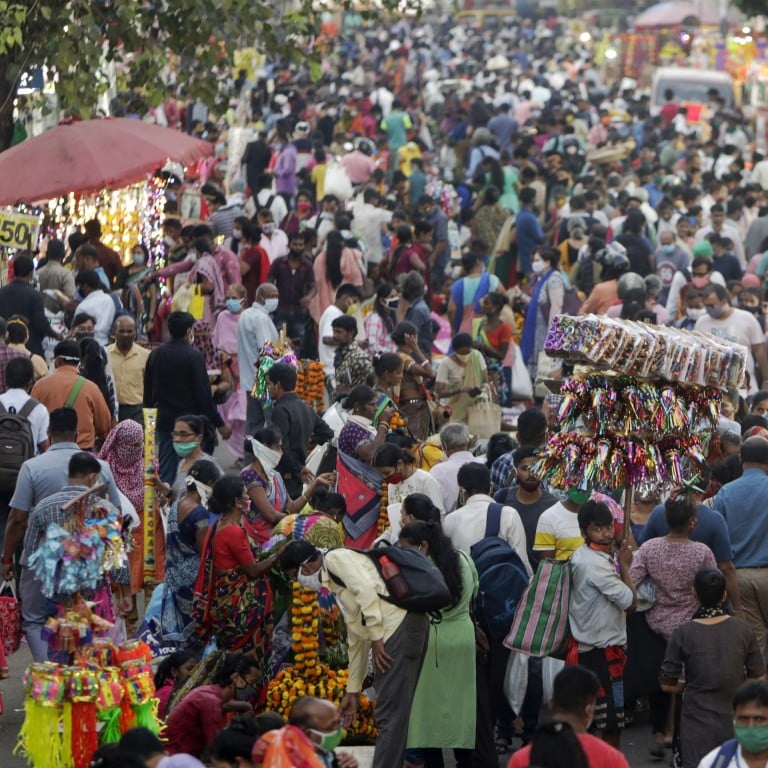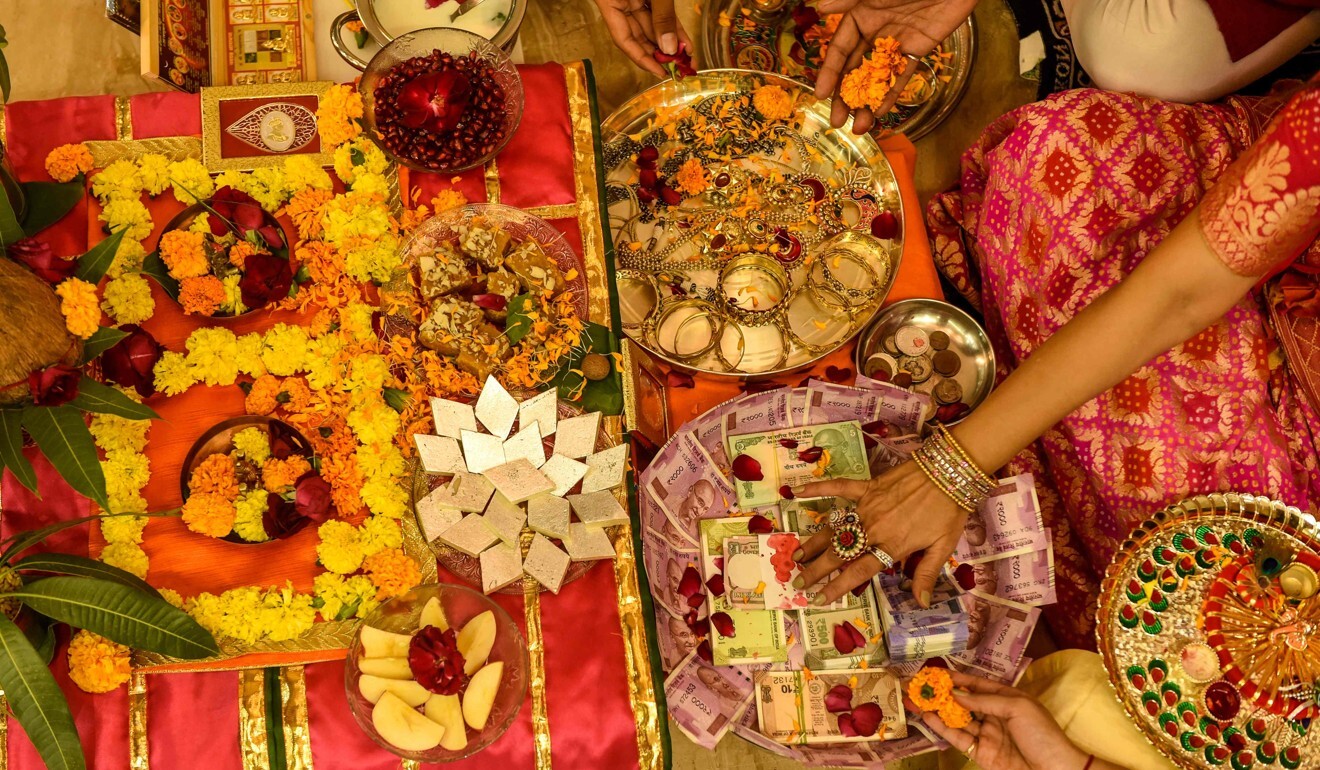
Diwali shopping frenzy boosts hope for Indian economy amid fears of coronavirus surge
- People have thronged markets from New Delhi to Mumbai ahead of Saturday’s festival, the country’s biggest holiday
- But while there is cautious optimism on the effect their spending will have, experts worry the crowds, winter weather and air pollution will see an upswing in Covid-19 cases
People have thronged markets in key cities from New Delhi to Mumbai and Ahmedabad ahead of India’s biggest holiday, but not everyone is wearing masks, leaving experts worried that public places could fuel super-spreading events.
Some are also concerned that India’s short winter could fuel a steep rise in new cases.
“Even in summer, super-spreader events with crowds of people will always pose a big risk of transmission,” he said. “For a variety of reasons, [in winter] the immunity goes down, the viral susceptibility goes up, the virus survival on outside surfaces increases and we now are in great danger of all of these factors joining together.”
India fears Diwali celebrations will bring surge in coronavirus
India has reported more than 8.7 million infections, the world’s second-highest caseload behind the United States. New Delhi, the capital, is going through its worst phase in the pandemic, with hospitals swamped and crematoriums heaving from a sudden increase in deaths.
The federal government has asked New Delhi to prepare resources to handle up to 15,000 cases a day during the winter season, when pollution peaks in the city and respiratory issues jump.
The air is only likely to worsen over the weekend, with people expected to ignite firecrackers even though several states have halted or restricted their sale and use.

Meanwhile, 42-year-old homemaker Chandni Kumar, who lives in the capital, has chosen not to go out in the run-up to the festival.
“These markets have people flouting all social-distancing norms, so I’ve taken a decision to shop online for clothes and sweets,” she said.
Others have followed suit – online retailer Flipkart, owned by Amazon and Walmart, has seen a 55 per cent jump in online sales from a year ago to US$4.1 billion for the October 15-21 period, according to data from management consultant Redseer.
Bangalore based Latha Ravi, who runs a catering business, said sales of sweets such as ladoos (a spherical confection made of flour, sugar, and shortening) and barfi (made from milk) had doubled, along with savoury snacks such as murukku.
India’s latest ‘boycott China’ move involves cow dung Diwali lights
“With the pandemic, though people have not gone shopping for clothes and firecrackers, they are buying a lot of sweets, nuts and dried fruits, and sending gifts to friends and relatives,” she said. “We have consciously brought down our prices by 30 per cent this year, to help people who have been hit by the Covid-19 cash crunch.”
There are no official restrictions on visiting other people’s houses during the festival, though some people are trying to avoid such trips and just send gifts instead. This has led to an increase in purchases of digital gift vouchers for fashion brands and food, according to Rob Peck, director of client services at O3M Directional Marketing in Chennai.
“We are not socialising this year, except for catching up with neighbours, which is a godsend,” said the 37-year-old American, who is married to an Indian.
India’s economy – which is estimated to contract 10.3 per cent this year, the worst slump on record – is showing signs of improving, according to a Thursday note by Pranjul Bhandari, chief India economist at HSBC Mumbai.

“Monthly sales tax revenues have crossed the 1 trillion rupee [US$13.4 billion] mark, manufacturing indicators have rebounded, and even sluggish capital-intensive industries have seen something of an uptick,” she wrote.
Praveen Khandelwal, national general secretary of the Confederation of All India Traders, said those in the industry were hoping for Diwali sales to touch US$8 million. However, several traders said they were trying not to let their hopes get too high since the crowds could be seeking bargains, and people were spending cautiously during the pandemic.
“If we compare our business to last year’s, then it’s only 40 per cent [of what it was] right now. Sixty per cent of customers are not there because everyone is afraid of Covid-19,” said Jitender Sachdeva, a shop owner in New Delhi’s upscale Sarojini market.
In neighbouring Nepal, another predominantly Hindu nation, people appear to have responded better to a government appeal to celebrate Diwali indoors and only with immediate family, while avoiding large gatherings or public celebrations.
Pfizer’s coronavirus vaccine offers little hope to Indians without power and cold storage
Many areas in the Himalayan state have prohibited the tradition of “Deusi-Bhailo”, in which groups of girls and boys go to their neighbours’ houses to sing and dance and in return receive money and sweets. The festival is spread over five days in Nepal with different days for worshipping gods, crows, cows and brothers.
New Delhi-based entrepreneur Akshita Goel said despite the crowds, this year’s Diwali was missing its festive spirit, including the freedom to spend time with friends or go to the shops to pick up sweets without face masks and hand sanitiser.
“Covid-19 has made us all wary of human contact and interaction,” she said. “I look forward to a vaccine soon, and better celebrations next year.”
Additional reporting by AFP, Reuters, Bloomberg


